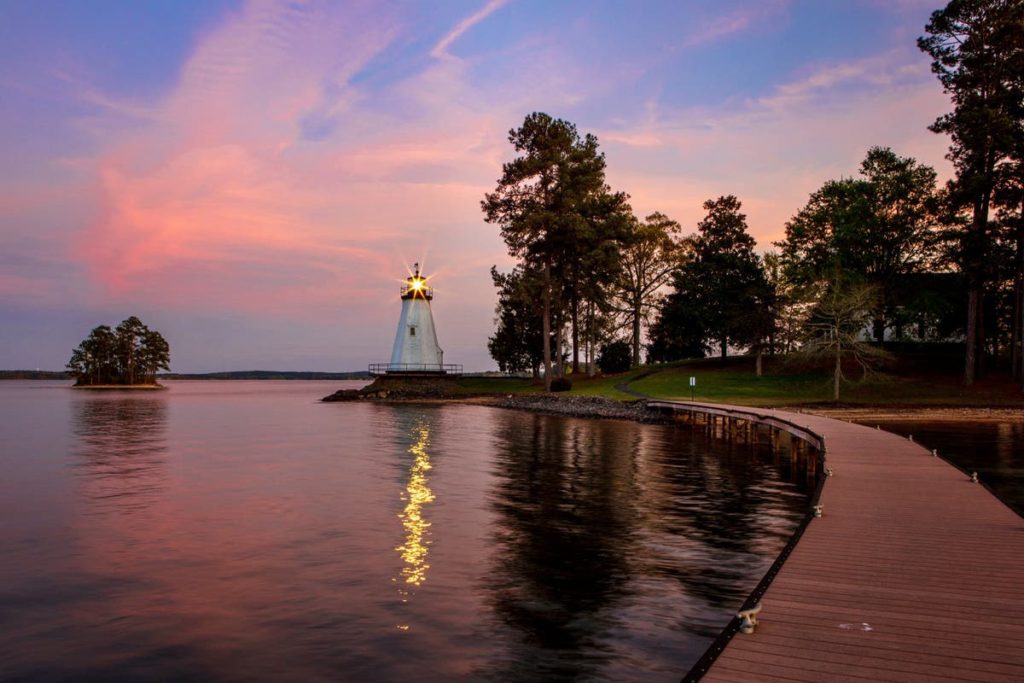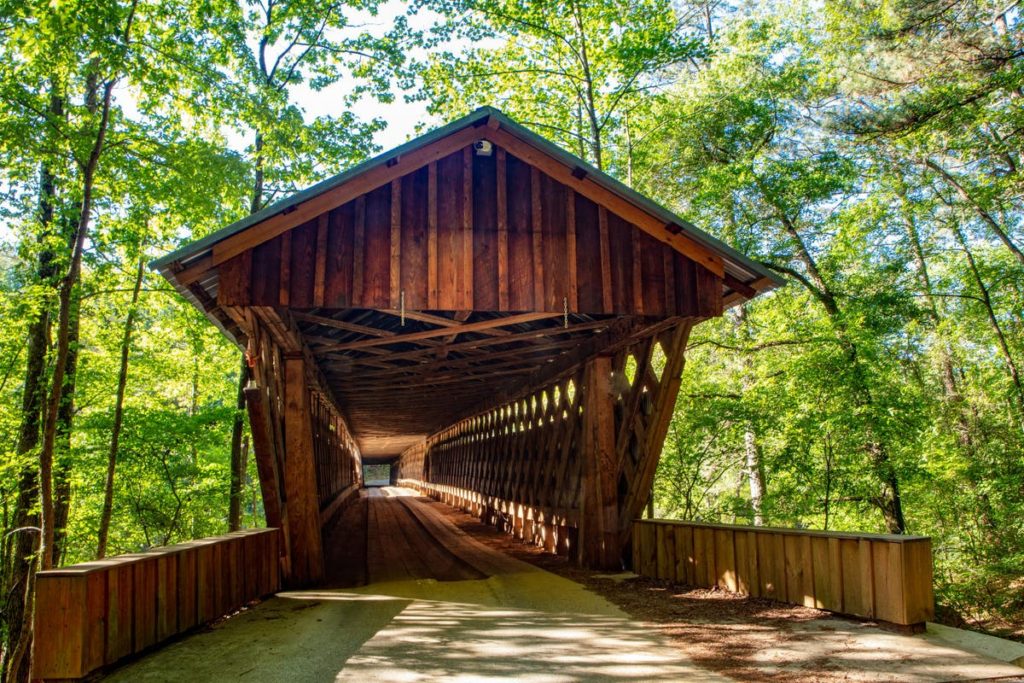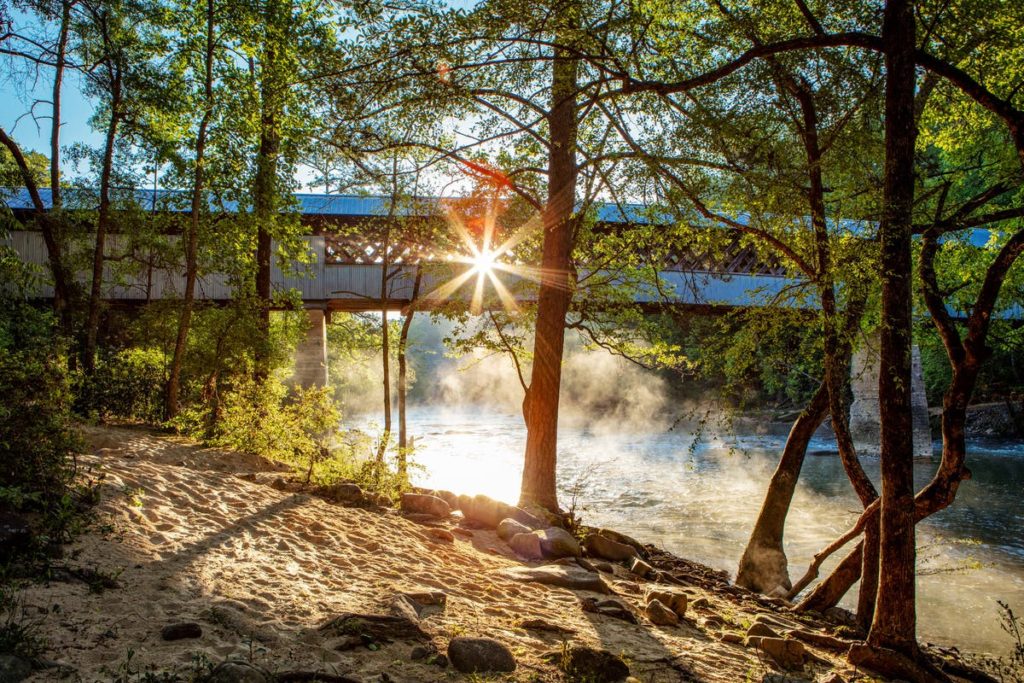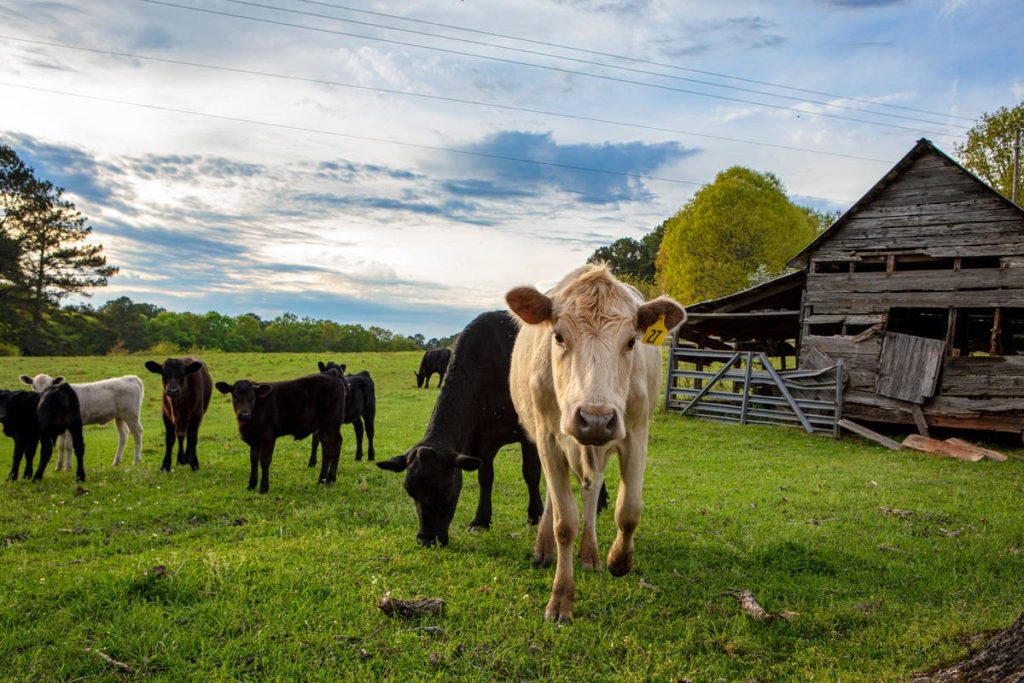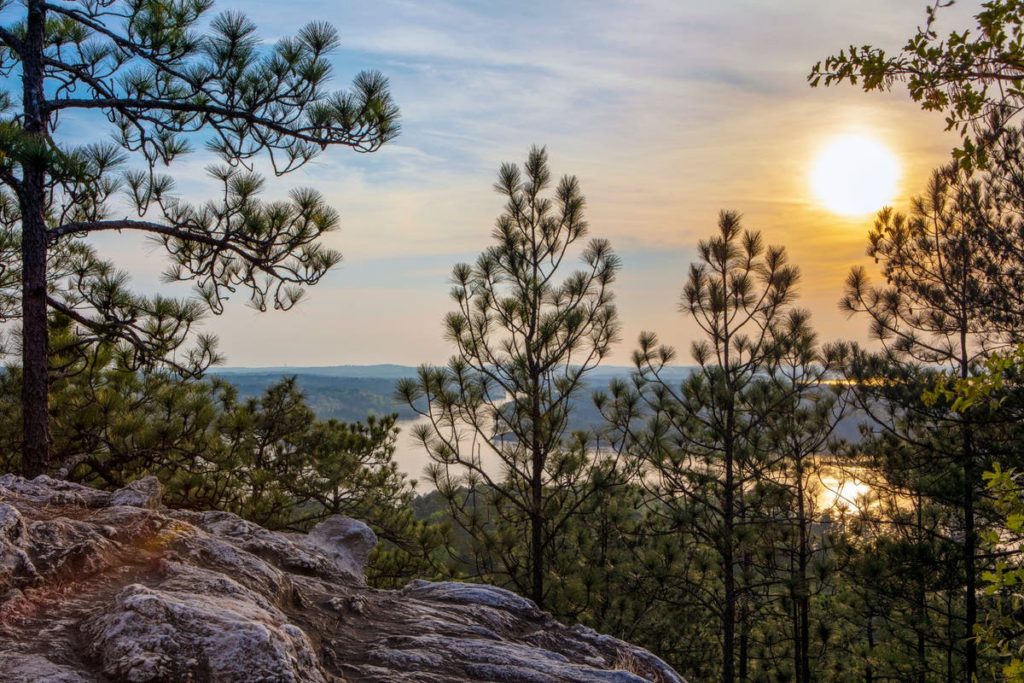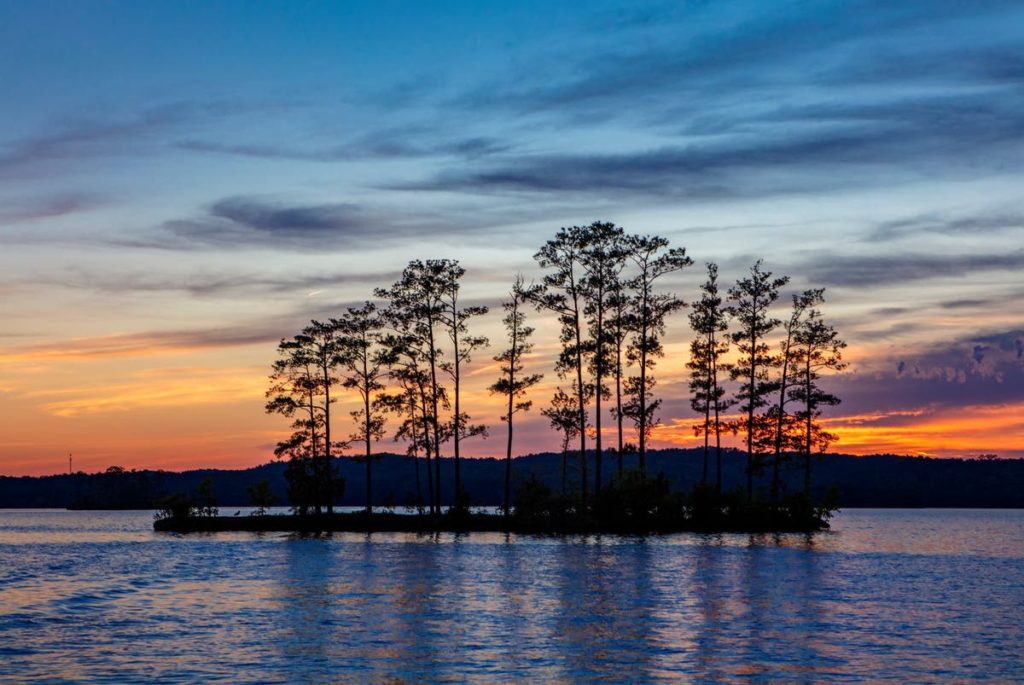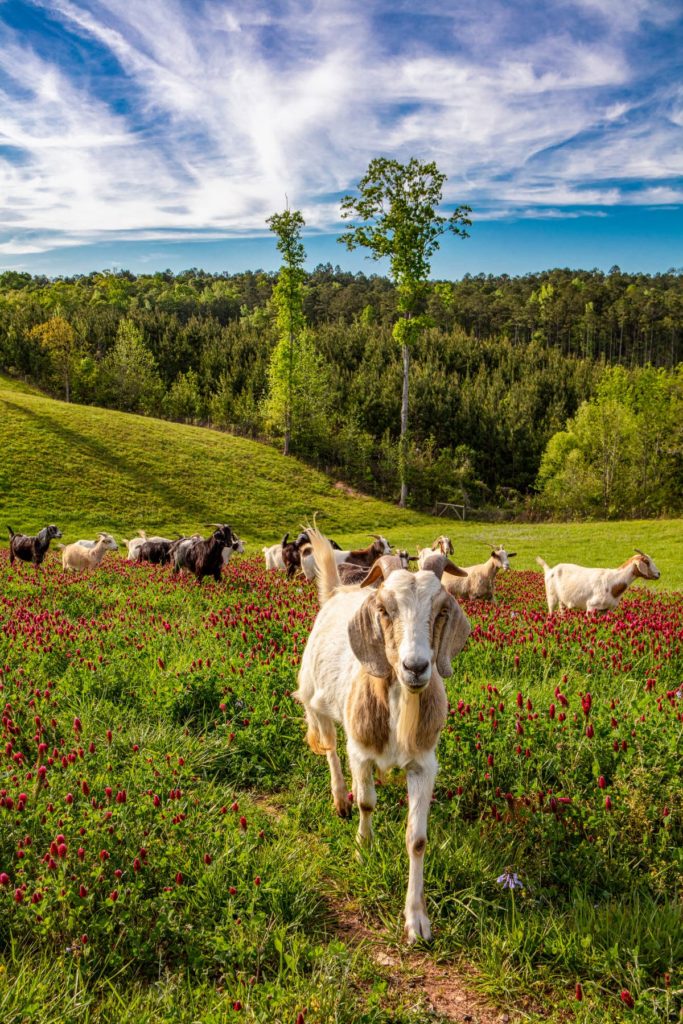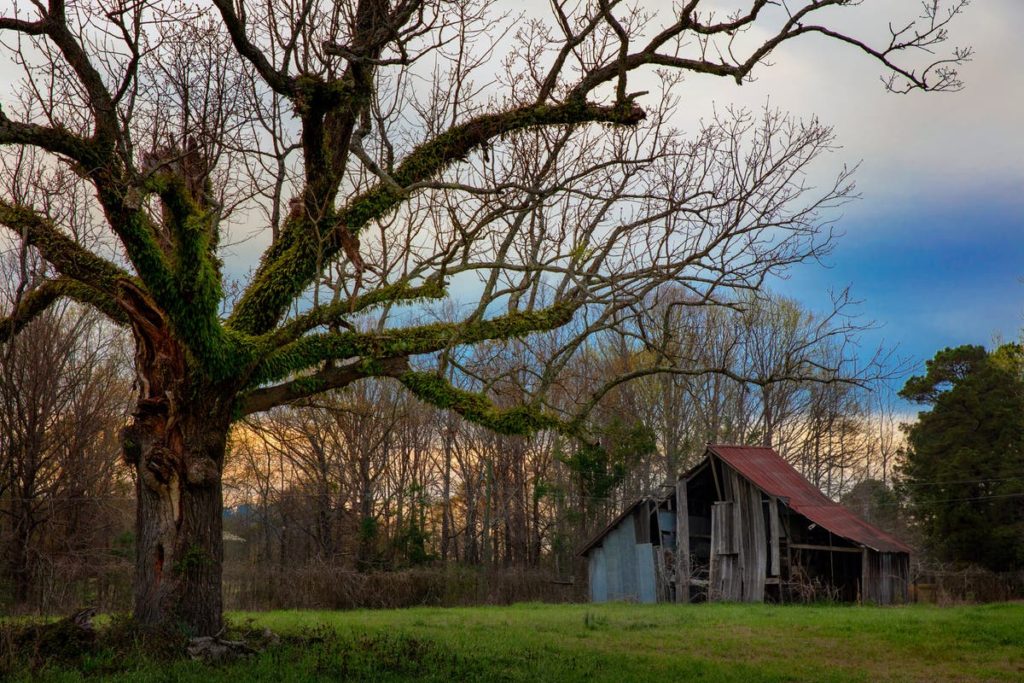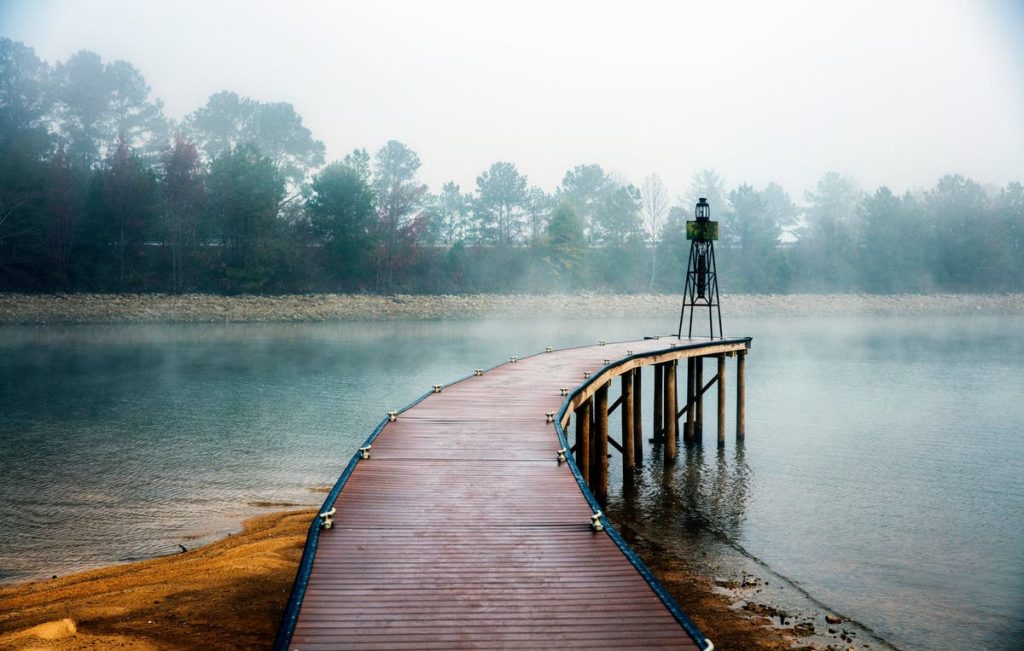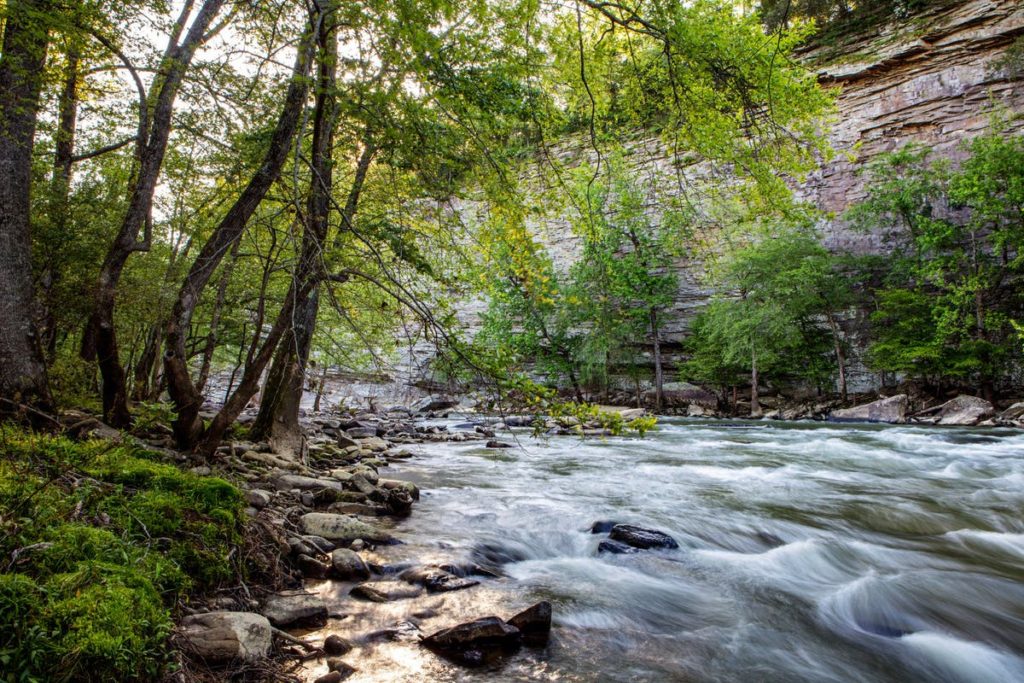Having traveled to Alabama to wait out the coronavirus pandemic, a photographer reassesses his relationship with his childhood and his hometown.
With travel restrictions in place worldwide, The New York Times Travel is turning to photojournalists to help transport you, virtually, to some of our planet’s most beautiful and intriguing places. In this week’s installment of The World Through a Lens, Scott Baker shares a collection of photographs from his hometown in Alabama.
In March, decades after I’d moved away, I returned to my hometown in Alabama to wait out the coronavirus pandemic.
Growing up here, I couldn’t wait to leave. In those days, Alexander City — in east central Alabama — was a mill town dominated by Russell Corporation, the maker of athletic apparel. Everyone I knew worked at the mill or was tied to it in one way or another.

Swann Covered Bridge, near Cleveland, Ala., was built in the 1930s.

The bridge spans the Locust Fork of the Black Warrior River.
Things moved slowly then; there was little to do. I spent much of my childhood wandering the county — hiking in the woods and canoeing down rivers and creeks. On weekends, Dad and I roamed aimlessly in his old pickup truck, seeing where the old dirt roads might lead us. When I’d ask if he knew where we were going, he’d say: “We’ll end up somewhere.”

Cows grazing beside a country road near Alexander City.
Life in Alabama didn’t feel especially rewarding to me then. Instead I preferred dreaming of escape. Determined to see and experience the world, I spent hours dragging my fingertips over a globe that sat in my family’s den. I never imagined I’d return for any length of time.
And yet here I am, home again unexpectedly, just like so many others.

Lake Martin as viewed from an overlook on Smith Mountain, one of the highest points in Tallapoosa County.
Far-flung destinations and photo assignments are off the calendar for now, but my urge to explore hasn’t abated. So instead of trekking through Patagonia or photographing the ruins at Angkor Archaeological Park in Cambodia, I am once again riding the back roads of my childhood, photographing familiar farms and taking boat rides on Lake Martin.

The sun sets behind a small island in Lake Martin.
For many years, I was hesitant to tell people where I was from. I was worried it might conjure preconceptions of racial prejudice or ultraconservatism. I was worried they might think of my hometown as provincial.
During these last few months, though, that pre-emptive defensiveness has washed away — and I can’t help but see the beauty of this place. Unlike in the ’70s, most of the roads are now paved, and many of the barns that stood straight during my childhood are now leaning with age. But the farms are as bucolic as ever, and the lake is still teeming with boats. I’ve even grown to appreciate the area’s slow, peaceful pace.

A rescue farm for goats and other animals in the town of Jackson’s Gap.
Tallapoosa County, which encompasses my hometown and much of Lake Martin, is sparsely populated; I can explore for hours without the risk of social interaction. Many of the farms in the area — featuring fertile land with rolling hills and wildflowers — are old homesteads, owned by single families for several generations.

An oak tree stands like a sentinel near an aging barn.

A pier on Lake Martin during an early morning fog.
My work as a photographer has taken me all over the world — to more than 25 countries and most of the American states. Traveling has given me many things: an appreciation for disparate people and cultures, a greater capacity for tolerance and love. But perhaps its greatest gift is the way it’s encouraged me to seek new perspectives, even when glancing at my own backyard.
All over America, people are re-evaluating big-city life. Things that seemed inconceivable three months ago — like returning to live in one’s quiet hometown — are now distinct possibilities. Present circumstances have given rise to a new set of internal negotiationsand assessments.

The Locust Fork of the Black Warrior River.
In a way, my newfound fulfillment here is hard to account for. Maybe I have less to prove. Maybe the looming threat of Covid-19 has made me more appreciative. Maybe these images are an atonement for the many years I’ve spent not fully acknowledging my birthplace. Or maybe I’m finally aware that my early years in Alabama are not — and never were — a liability.
The New York Times

